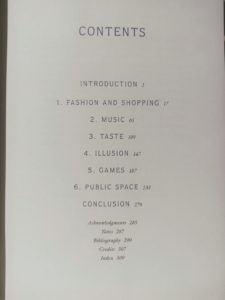“Toys and games are the preludes to serious ideas” — Charles Eames
” Today we worry about dystopian future where the machines become so physically dexterous that they take over our manufacturing workforce, or so intelligent that they become our masters….. Perhaps we have been wrong to worry about what will happen when the machine start thinking for themselves. What we should be really worried about is what will happen when they start to play.”
 一般認知是進步和創新始於生存需求,但作者認為人類許多的進步和創新是源自於享樂
一般認知是進步和創新始於生存需求,但作者認為人類許多的進步和創新是源自於享樂
時尚和購物的享樂帶動了工業革命 (紡織)
音樂和聲音傳播影響了通訊技術發展(和軟體)
味覺的享樂促成了國際貿易(香料)
視覺享受推動了影視技術和視聽的結合(動畫)
遊戲造就了運算科技,開源創作和人工智慧
公共交流空間則創造了博物館,公園,動物園,主題樂園,等等
除了很多好玩的故事外。最有趣的是看到這麼多“不務正業”的人所造就的“跨領域思維”。比起生存必須的學習,“玩”幾乎每個小孩是不用教就與生俱來的能力啊
當人工智慧顛覆許多行業時,或許有一技之長不再是生存之道。反而多元接觸,越會玩,越懂什麼讓人歡樂,更有機會活的很好呢~
作者去年的另一本書是我去年的top 10。去年底還沒有中文版。剛剛很開心的發現有中文版了!
喜歡科普,或喜歡跨領域思考,或單純喜歡有趣的書的人,我很推薦這一本:
“How we got to now”
中文版:“我們如何走到今天?
一段你不知道卻影響人類兩千年的文明發展史”
https://mssl.eslite.com/Main/Product/2562910?kw=Steven-Johnson&pi=0
